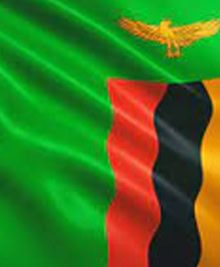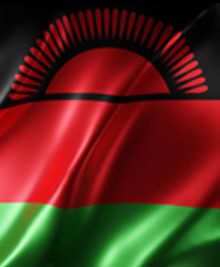Ramadhan, the month of fasting, is also the time when many Muslims calculate and discharge their Zakaat. One of the fundamentals of Zakaat is to discharge Zakaat to eligible recipients.
It is the onus of the individual to verify the Zakaat eligibility of the recipient. If verification is not done and the person was not eligible for Zakaat, then that Zakaat has to be repaid.
It is of great concern that many individuals hand over their Zakaat to beggars standing at traffic lights. Many of these individuals are “professional” beggars who make so much money that it is compulsory on them to pay Zakaat let alone receive it.
Individuals experiencing difficulty in discharging their Zakaat may forward their Zakaat to the Jamiat and have their Zakaat discharged to eligible recipients verified by Ulama.
Question and Answer:
Q. Upon whom is Zakaat fard?(Question published as received)
A. Zakaat is Fard on a Muslim male or female who is mature (Baaligh) and sane. He/she must also be the owner of Nisaab. Nisaab is the minimum amount of wealth which makes a person liable for Zakaat. If one is the owner of Nisaab after one lunar year, then Zakaat will be Fardh upon him. The Zakaat should be paid annually on the Islamic date of a lunar year.
Q.How do I calculate Zakaat?
A. Zakaat is payable on all Zakaatable assets to the value of nisaab or more at the end of one’s Zakaatable year. Zakaatable assets are generally gold, silver, cash, dividends, debtors and trading stock. The Zakaatable year is the lunar year after the day one acquired possession of Zakaatable assets to the value of Nisaab. Creditors are subtracted from the sum of Zakaatable assets and 2.5% of these are paid as Zakaat.
For example, A person owns Zakaatable assets to the value of Nisaab on the first day of Ramadhaan 1432. If on the first of Ramadhaan 1433 he still owns zakaatable assets to the value of Nisaab then 2.5% of the total Zakaatable assets on hand on the first of Ramadhaan 1433 is liable for Zakaat irrespective of the fluctuation during the year. If, however, the amount during the year reached zero then a new year will start after one owns Zakaatable assets to the value of Nisaab again.
Q.Can you guide me about Zakat? I mean we have to pay Zakat after completion of one year. What are the assets on which we have to pay Zakat? What is basic rule for the payment of Zakat?
A.Allah Ta‘ālā states in the Holy Quran,
وَأَقِيمُوا الصَّلَاةَ وَآَتُوا الزَّكَاةَ وَمَا تُقَدِّمُوا لِأَنْفُسِكُمْ مِنْ خَيْرٍ تَجِدُوهُ عِنْدَ اللَّهِ إِنَّ اللَّهَ بِمَا تَعْمَلُونَ بَصِيرٌ
“And establish Salāh and pay Zakāh; whatever good you send forth for yourselves, you will find it with Allah. Certainly, Allah is watchful of what you do.”
Zakāh has two denotations in Arabic, namely growth and purification. Zakāh is paid as a means of purifying one’s wealth and fulfilling the obligation will be a means of increase and growth in the remainder of one’s wealth.
Calculating Zakah:
Zakāh will become compulsory on a sane and mature Muslim when his / her wealth exceeds the Nisāb and this amount of wealth is maintained for the duration of one entire lunar year. The Nisāb is 20 Mithqals (87.479 g) for gold and 200 Dirhams (612.35 g) for silver. Any currency equal to the amount of any of these Nisābs will also render Zakāh binding. For example, if the price of silver is quoted at R4.40 per gram then the Nisāb will equal approximately R2, 702. If one’s wealth decreases below the Nisāb during the year but before the expiry of the year, it reaches the Nisāb, Zakāh will be binding contrary to the case of the wealth not rebounding to amount of Nisāb upon the expiry of the year. However, if one loses his entire wealth, a new lunar cycle will begin after reaching the Nisāb for the second time. All debts and liabilities will be deducted from his wealth before calculating his estate. Only that particular year’s liabilities will be deducted from long-term debts such as car / home financing. Loans given and other receivables into one’s estate will be accounted for even if the person is not paid by his debtor for several years. Any gold or silver items such as jewelry, ornaments etc will also form part of Zakatable assets. If the percentage of gold or silver in the item is more than the metal alloy with which it is amalgamated the entire item will be considered as gold or silver. If the percentage of alloy is greater, if there is enough gold or silver where it is possible for it to be extracted, then Zakāh will be compulsory only on the value of the gold or silver therein and not on the entire item if the Nisāb is reached. Similarly, any items purchased for trade will be subject to Zakāh and must be accounted for in the calculation. A person should add his / her cash savings, values of gold and/or silver, value of the merchandise of trade and any receivables from debts etc. Thereafter, he / she should deduct the amount of debts owed to others. If the value of the net total equals the Nisāb of gold or silver, he / she will have to pay 2.5% of the amount in Zakāh. Hereunder is a brief chart illustrating the calculation of Zakāh:
Personal Wealth
Amounts:
1. Amount of Cash and Savings at home or in the bank -R 10,000
2. Current value of any gold and silver jewelry, coins, utensils etc -R 5,000
3. Value of assets and merchandise for trade -R 20,000
4. Receivables and loaned amounts to others -R 5,000
Total these amounts here:
R 40,000
Amount Debts to be paid:
R 20,000
Subtract the total amount of debts for the year from the above amount.
Nett Total of Zakatable Wealth
R 20,000
if the net total of Zakatable Wealth is more than the Nisab amount then…
Multiply the nett total by 2.5% (nett amount x 0.025)
R 500
Q) Is Zakat applicable for Diamond or other precious metals/stones?
A:If diamonds or precious stone are purchased for trading purpose, i.e. with a clear intention of their resale, they are certainly subject to Zakah like any other item purchased with the same intention. But if a diamond or a precious stone is kept for personal use only, in that case Zakah is not obligatory on its value.
The Principle governing the levy of Zakah is that only those assets are Zakatable which either fall within the definition of money, or are the metals universally accepted as a medium of exchange like silver and gold. All other assets are not zakatable unless they are meant for trade and resale.
The precious stones, including diamonds, are, no doubt, very valuable assets. But if they are not purchased for trading, they are not subject to Zakah. This principle is based on a Hadith:
“There is no Zakah on a stone”
On the basis of the above, the overwhelming majority of the Muslim jurists are of the view that precious stones are not subject to the levy of Zakah unless they are acquired for the purpose of resale. There are, however, some jurists like Imam Ahmed who believe that all precious stones are liable to Zakah, even if they are kept for personal use.
Therefore, if somebody pays Zakah on the value of these stones, it will be free from all doubts and will promise more reward. But so far as the mandatory nature of the levy is concerned, the view of the majority is supportive of non- obligation of Zakah, because they are neither money nor a universally accepted medium of exchange. Moreover, the value of precious stones depends on their scarcity and rareness. They have no intrinsic value. Therefore they are like valuable antiques or manuscripts which, on account of their rareness, sometimes have more value than gold. Still, they are not subject to Zakah unless they are purchased for trade or resale.
Likewise precious stones may have more value than gold. Yet, the obligation of Zakah is not imposed if they are not meant for the trade. ”
(Contemporary Fatawa, Mufti Taqi Saheb, Pg. 101)
Q.I have sold my (inherited) agriculture land in the month of July 2012. The sale amount has been credited to my bank account on 17-07-2012. My query is whether zakat applicable on this amount on 1st of Ramadhaan or not. If yes, what percentage would be applicable?
A.In principle, the proceeds from a land which is sold is zakatable.
The proceeds from the sale of the land in question will become zakatable as soon as the money enters your ownership.
To calculate the zakat on this amount, you will add these proceeds to your nett savings over the previous year.
Thereafter, if the resulting nett savings are equal or more than the nisāb of zakāt, then 2.5% of the total nett savings will be calculated and paid off as Zakāt
All Information provided on this page came from Jamiatul Ulama KZN





















